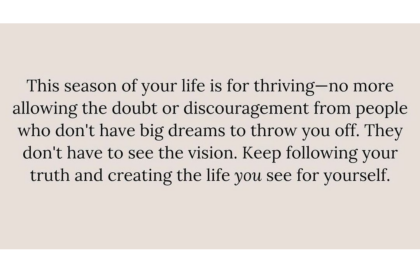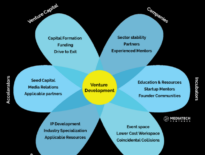
Focus. We hear that word and advice bantered about A LOT in the startup community but rarely is that mentorship capably followed up with WHAT to focus on and why.
This is what contributes to founders to wasting time and failing. You think the advice is helpful; it’s not, it’s distracting.
Focus? Yes. But on what??
Most of the advice I hear given is misleading.
“Focus on customers,” okay, but which ones??
“Focus on fundraising,” sure… but that take a lot of time and attention. What happens if it doesn’t manifest, and we spent our focus trying?
“Focus on the product,” well that’s just dumb, if I’m being blunt. What if no one wants it or it’s flawed?
Focus on the wrong thing in this regard (As a startup founder mind you, this doesn’t apply to business owners or working professionals), causes waste that will burn you out and cause failure.
Focus On What?
Focus on the PROBLEM. Be fixated on the problem. Nurture an addition to the problem so great you need to snort it.
Not, the solution, Paul?
The mistake most make, and where many, particularly many investors in being horrible at advising, is that “focus” does NOT mean focus on making your solution work! You get misled by the notion that you need to prove the solution can work because of requests for traction as evidence but you can’t ever prove anything will work as a company, because the solution alone isn’t a company. What you can do, all you can do, is incessantly focus on creating value by serving the challenges inherent in problem.
** Odds are ridiculously high that that solution won’t work, and the startup will fail **
So, what do you do? Focus on the problem so that all of your efforts, distractions, pivots, and executions contribute to creating value serving the challenges inherent in the problem.
Two things tend to happen when you focus on the solution (or something other than the problem):
- Focusing on the solution causes founders to waste time on things that *aren’t working* and therefore are wasteful.
- Losing focus on the problem causes the team to start chasing other opportunities unrelated to the problem; grasping at straws because you’ll take on anything that “seems” to help.
Operating Businesses (which aren’t startups!) focus on the solutions: delivering the solution to customers, serving customers with that, and profiting (and yes, I mean profiting, not making money, because an operating business can focus on reducing costs and earning revenue = profit).
Startups must focus on the problem because you can’t yet depend on the reliability or opportunity in whatever solution you’re providing at the moment.
Distracting yourself from solving the problem, to sell what you’re doing now to any customers or to chase a new opportunity that’s exciting but unrelated, is a COST – a distraction from adding experience, data, market share, or revenue, from within the same focus as the problem.
Stay focused such that everything you are doing is aligned to continuing to overcome the problem, whatever that takes, and as a result, all of your effort, even if/when not specifically what you want to be doing, supports your mission of solving the problem and building a sustainable, competitive, valuable company 
Next time ANYONE advises you to simply “focus,” ask them:
1. On what?
2. Why?
3. How?
Because, if they can’t answer those 3 questions in a way that is actually helpful toward you creating value from working the problem, then their advice is distracting (and likely wrong).



So many of these startup “coaches” and “I help founders” types I see on LinkedIn think EXACTLY opposite of this, post their bs, and ramble on about their worldview, blah blah blah blah blah – and repeat the same tired phrases and ideas – which is WHY I never work with most of them.
Or even worse – some of these “founders groups”. All about corralling founders, than actually helping them. “I help founders” What – get investors? Get over humps? “How” will these “I help founders” types actually directly help said founder(s)? I have yet to see it. This is GREAT Paul!
“Most of the advice I hear given is misleading.
“Focus on customers,” okay, but which ones??
“Focus on fundraising,” sure… but that take a lot of time and attention. What happens if it doesn’t manifest, and we spent our focus trying?
“Focus on the product,” well that’s just dumb, if I’m being blunt. What if no one wants it or it’s flawed?”
Exactly. There’s a lot of misleading and crap advice out there. Loved your article.
The Startup Industrial Complex is real. Never had so much a lemonade stand (as a kid) but dole out “expertise”. The irony is, evidently there’s a market for such false gods.
p.s. That said, it’s not exclusive to LinkedIn and startups. It’s LinkedIn in general. LOTS of noise. Meaningless, useless cookie-cutter noise. But that seems to be what the market wants. SMH
Tell me about it, Mark Simchock.
However, if you saw the nature of our startup vision, I can, for one, understand the reluctance we encounter oft enough.
To claim “We are like no startup in the entire world” is not a mere boast or euphemism. It’s the truth.
Another Paul O classic that strips out the BS. Kudos!
p.s. Make the single Why? The Five Whys and this is 100% flawless.
It’s funny, you said flawless (and thank you by the way), and I just reread it only to discover a ton of typos ?
Paul O’Brien I was speaking to the idea(s). The human execution…well, we’re all flawed 🙂
Hey Paul good insights. I suspect you’ve had a similar experience: I’ve found if you’re focusing on creating value – it just isn’t enough, unfortunately. Focusing on capturing value and also distributing are both equally, if not vastly more important than pure value creation in most business cases. If creating a successful business was simply a matter of creating value and realizing the reciprocity for doing so – then every business could be, 100% tip based.
Mark Biw yes though I’d caveat further given my post.
Most startups fail because they prioritize value capture. Sell. Talk to customers and sell.
The prioritization (in a startup, again, mind you, not a new business!) must be:
Value identification > value creation > distribution > value capture
Most founders get fixated on creation and capture. Causing waste because they think their creation is right and they’re focused on capture more than identification and distribution ?
Love this, Paul O’Brien! So well said, as usual.
Chase the problem. How do you know it’s a problem? Think through the “Who, what, when, where, why, how?” approach. Yes, storytelling. Apply to problem. Who experiences the problem? How do you know? What is the problem? How do you know? When is it a problem? How do you know? Etc etc etc. Don’t try to boil the ocean. Chase the problem. Fall in love with solving the problem. Let that vision—a world without the problem—pull you. Thank you for coming to my TED Talk! ??
We’ll have to have a chat about MediaTech Ventures
It’s entirely based on who, what, when, where, why, and how but in how reorganizing that tells a better story while as the same time, trains your brain to prioritize and focus on the right things first and foremost.
Why
Who
When
Where
What
How
Paul O’Brien Makes sense. Perhaps in a sense distribution is some form of value capture for a startup (perhaps the best kind, too). If your app/portal/product is everywhere, well the company is probably worth something – even if there’s not a ton of value creation going on – attention/exposure matters. CPG companies for instance focus on getting shelf space and into many stores. The challenge is unless you get really widespread distribution, then the value capture per user will need to be higher to make it sustainable.
So it’s a bit of a catch-22 in my view – it’s very hard to get widespread distribution, to the point whereby minimal value capture will result in sustainability (like Twitters 4 or 5 cent revenue per hour). But if you achieve lesser distribution, larger per user/cx value capture is required for sustainability – which is also a challenge (but probably the lesser of the two challenges). These foundations also rests on seemingly opposed models – few will be willing to pay up for a mass-market widely distributed/available product initially (like a Twitter clone), but a few might be willing to pay up for a niche product (like API specific enterprise SaaS).
I would also add “focus” should include the inward attention to personal habits and energies to continue the daily amount of effort needed
David Heitmann you should see my rant today on LinkedIn about mental healthcare ?
Paul O’Brien Love this and yes cannot wait for our chat! Focus. Prioritize. To me, the why and who are inextricably linked. ? You are doing amazing things – keep inspiring all!
This may be my favorite post of yours, Paul, from a long collection of good guidance. It aligns beautifully with Sinek’s directive to start with WHY by encouraging startups to remain focused on WHY even after they’ve successfully launched.
Hitting kpis? Are most startup founders not setting kpis or something? If not, why?
Context, I’m a startup founder, accomplished entrepreneur, and literally don’t know how to operate without kpis